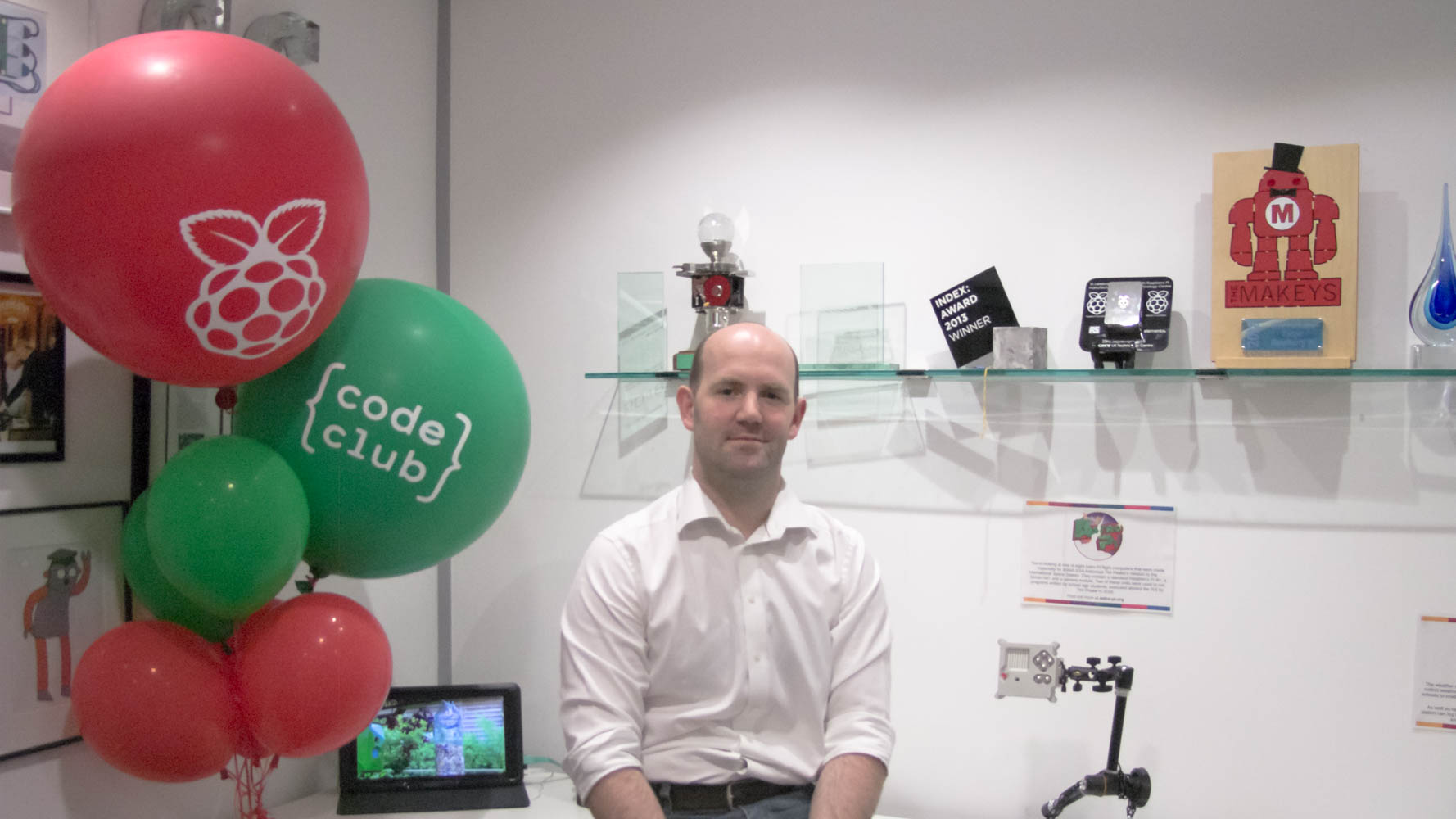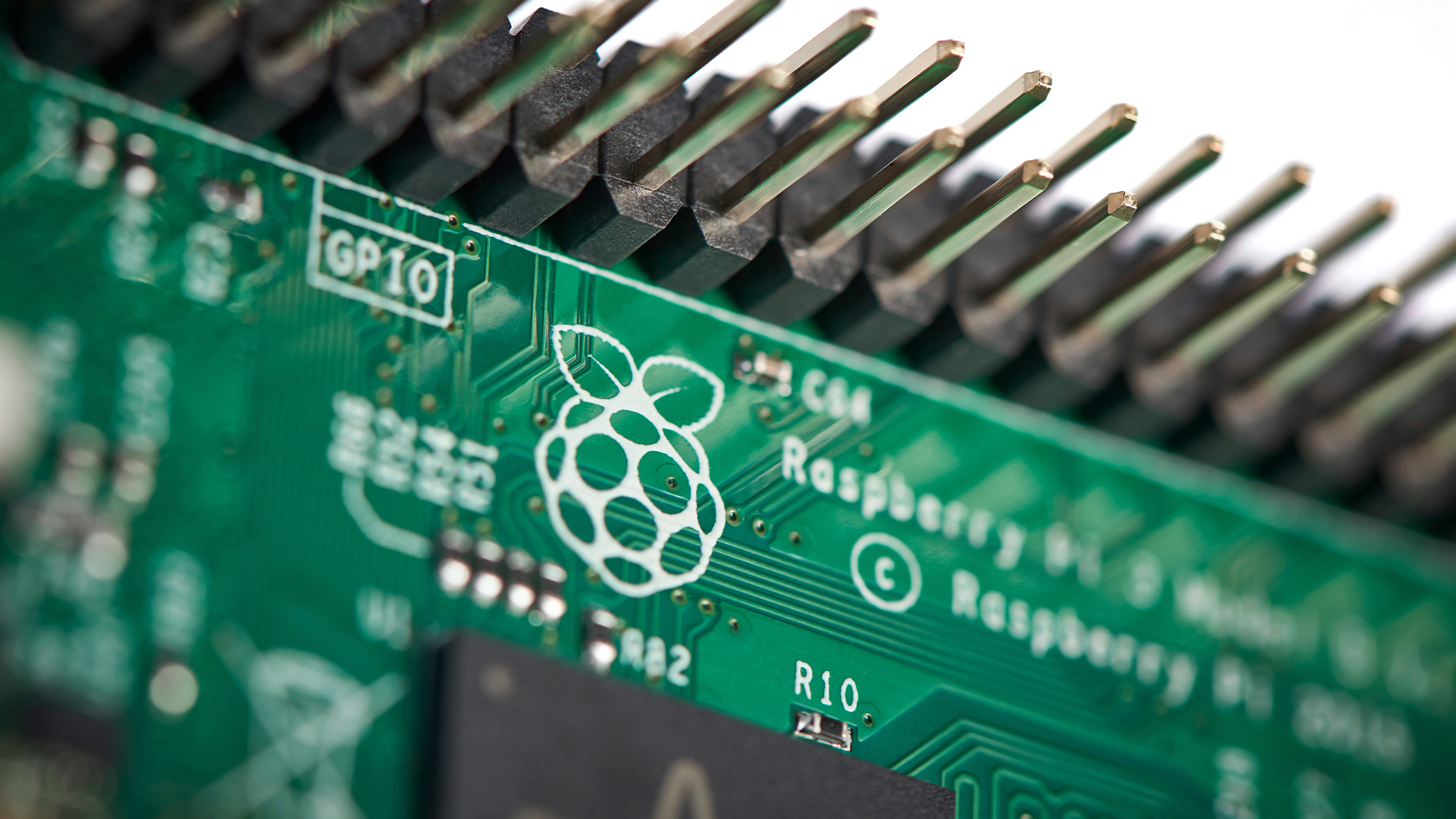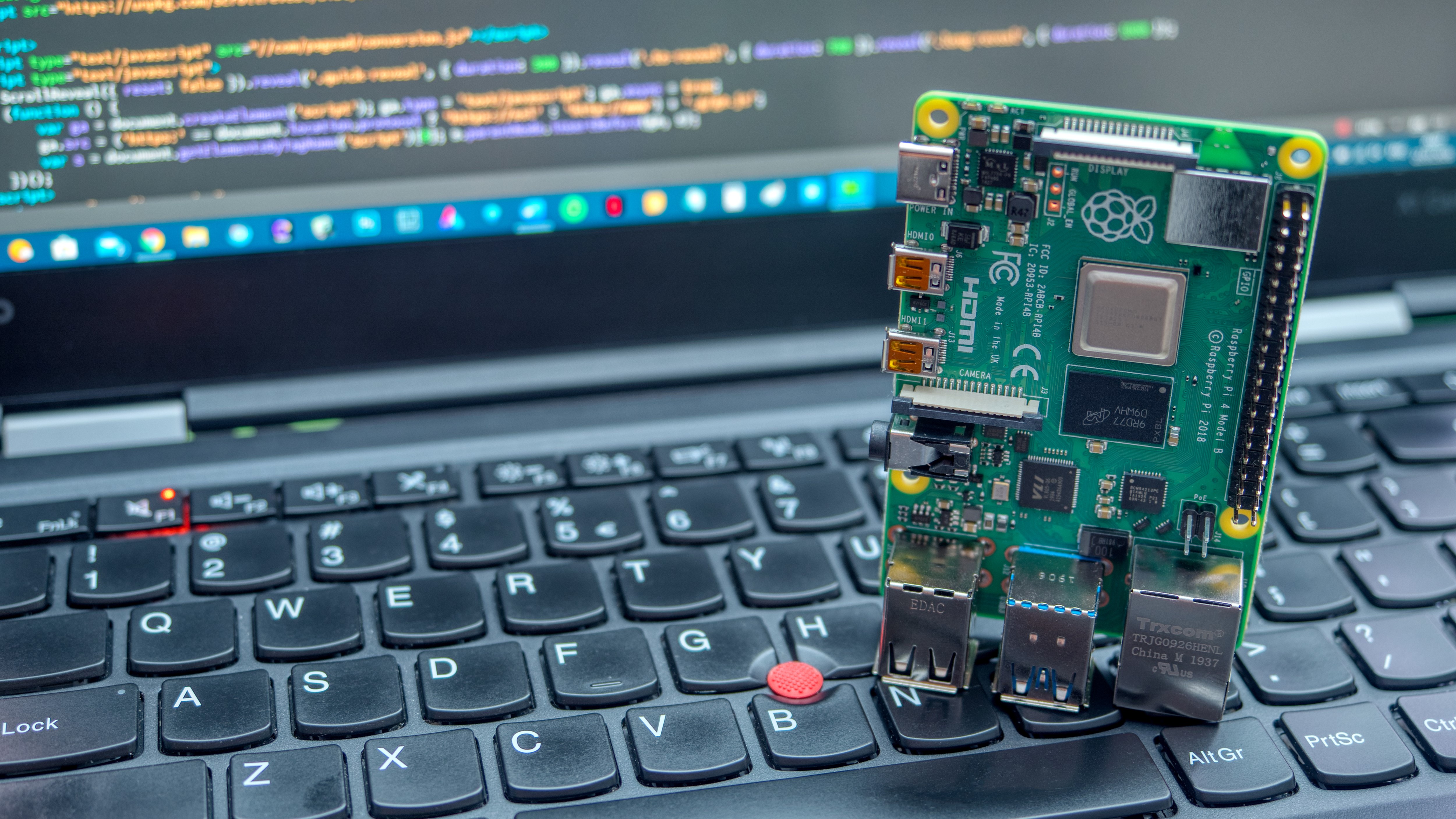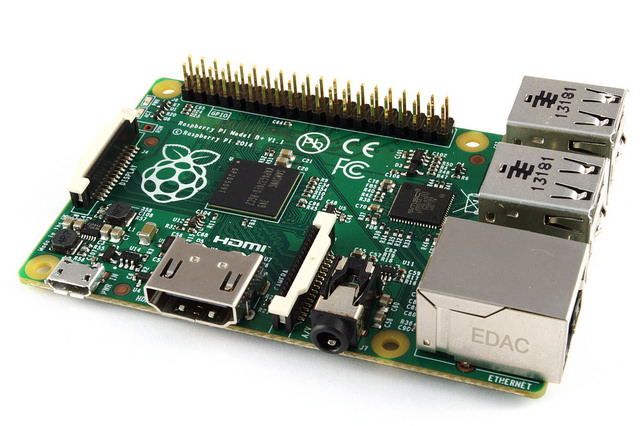Upton Funk: what’s next for the man behind the Pi?
Raspberry Pi founder Eben Upton on charity, chips, and the changing face of tech


Outside of the hardware business, the foundation puts most of its focus on grassroots education projects like Code Club. Following its acquisition in 2015, Raspberry Pi owns and operates Code Club as a subsidiary, which sets up volunteer-staffed after-school clubs that teach kids about programming, computing and other digital skills. "Code Club is amazing," he says. "What never fails to astound me is the number of kids - there's over 5,000 Code Clubs in the UK, we've reached about 75,000 kids."
"We've got to the point where more than half of the schools in that age groups have code clubs," Upton says. "It changes what the question is. The question isn't 'what's a Code Club', the question for a parent is 'why doesn't my school have a Code Club? Because my friend's child's school has a Code Club'."
Not only has Code Club proved to be a huge success over here, it's also expanded internationally. There are hundreds of franchised Code Clubs in countries including Australia, South Korea and Brazil, all of which are working within their communities to get kids working with computers at an earlier age.
Upton's goal with Code Club, he says, is "finishing off the UK". While he acknowledged the changing nature of tech means the job's never 'done', his aim is to reach the point where there's a Code Club in every school. This, along with the foundation's other efforts like its Picademy teacher training programme, is geared towards combatting the tech industry's burgeoning skills shortage.
In particular, Upton is aiming to bring more girls into the tech workforce, which continues to struggle with a serious gender imbalance. "It's the single thing you can change," he says. "Participation rates among women are so low that if you got them up to the same level as they are already among men, then you would effectively double your workforce. If there's one bit of low-hanging fruit, that's the one."

He's aiming to fix this problem through getting them invested at earlier ages. It appears to be going well; roughly 40% of Code Club attendees are girls, a proportion that far outstrips most tech firms. "The reason it's nice that we're doing this intervention around Code Club at nine to 11 is that is a window where if you can get a girl to the end of [it] and she's still excited about [tech], there's every chance that she'll continue to be excited about it all the way through her career."
The progress of the five-year old foundation is impressive but for Upton, the important thing is that it's built to last. The way the foundation's governed has been recently revamped in order to make it self-sustaining. Under the new organisation, the foundation maintains a broad pool of expert members, who are elected by their fellow members to join the board of trustees. The first trustee to be elected under this new system is Dr. Tilly Blyth, head of collections and principal curator at the Science Museum in London.
Get the ITPro daily newsletter
Sign up today and you will receive a free copy of our Future Focus 2025 report - the leading guidance on AI, cybersecurity and other IT challenges as per 700+ senior executives
"That gives us some confidence that we're in this for the long run," he says. "We're trying to build an organisation that's going to outlive me; if this organisation dies before I do, I will be very unhappy. You don't want to be predeceased by your children and you don't want to be predeceased by your charitable foundations."
So is all this effort paying off? Well, early signs would suggest that it is. The dip in university admissions for computing courses - the problem the foundation was originally created to solve - has reversed. In fact, since its creation in 2012, applications to Cambridge's computer science course have doubled.

Upton's witnessed the impact of his efforts first-hand. "When I used to interview people, it used to take me an afternoon to interview my people for my college. I bumped into my successor in a bar after interviews last year, and it was the end of the week, and he was leaning on the bar; he'd had 42 applicants. I used to have six. He was leaning on the bar with a pint of beer, completely ashen-faced," he laughs, "so I've ruined his life!"
Eben Upton exudes passion. From corporate governance to product design to outreach initiatives, it's clear there isn't a single element of the Raspberry Pi Foundation's work which doesn't utterly captivate him. The company he created is thriving and he appears to be accomplishing that most elusive of Silicon Valley goals: making the world a better place.
So what's next for the baker of the Raspberry Pi? Founding another startup? Political ambitions, perhaps? According to Upton, working at Raspberry Pi is just too much fun to pass up. "What's not to like: surround yourself with a staff of easy-going geniuses and build great toys all day long! So I'm still here, and while it's still fun, I'll be here."
Adam Shepherd has been a technology journalist since 2015, covering everything from cloud storage and security, to smartphones and servers. Over the course of his career, he’s seen the spread of 5G, the growing ubiquity of wireless devices, and the start of the connected revolution. He’s also been to more trade shows and technology conferences than he cares to count.
Adam is an avid follower of the latest hardware innovations, and he is never happier than when tinkering with complex network configurations, or exploring a new Linux distro. He was also previously a co-host on the ITPro Podcast, where he was often found ranting about his love of strange gadgets, his disdain for Windows Mobile, and everything in between.
You can find Adam tweeting about enterprise technology (or more often bad jokes) @AdamShepherUK.
-
 Enterprises face delicate balancing act with data center sustainability goals
Enterprises face delicate balancing act with data center sustainability goalsNews High energy consumption, raw material requirements, and physical space constraints are holding back data center sustainability efforts, according to new research from Seagate.
By Emma Woollacott
-
 Cleo attack victim list grows as Hertz confirms customer data stolen
Cleo attack victim list grows as Hertz confirms customer data stolenNews Hertz has confirmed it suffered a data breach as a result of the Cleo zero-day vulnerability in late 2024, with the car rental giant warning that customer data was stolen.
By Ross Kelly
-
 Why the Raspberry Pi IPO is a major seal of approval for the British tech scene
Why the Raspberry Pi IPO is a major seal of approval for the British tech sceneNews Raspberry Pi has surged in popularity since first launching in 2012, and has plans to further boost its appeal globally
By George Fitzmaurice
-
 Raspberry Pi expands support for industrial customers
Raspberry Pi expands support for industrial customersNews Businesses will now be matched with design partners to help with industrial deployments
By Keumars Afifi-Sabet
-
 Oracle and Raspberry Pi Foundation launch kids learning project
Oracle and Raspberry Pi Foundation launch kids learning projectNews The two companies are inviting children to build their own weatherstation to gain programming skills
By Clare Hopping
-
 University of Cambridge offers free Raspberry Pi course
University of Cambridge offers free Raspberry Pi courseNews Twelve step course will teach students how to build an operating system for £29 computer.
By Rene Millman
-
 Firms demanding more from next-gen workers
Firms demanding more from next-gen workersNews The skills you need to be attractive to modern day employers have drastically changed - and the pressure is on the education sector to help equip students for the workplace.
By Kellan Howell